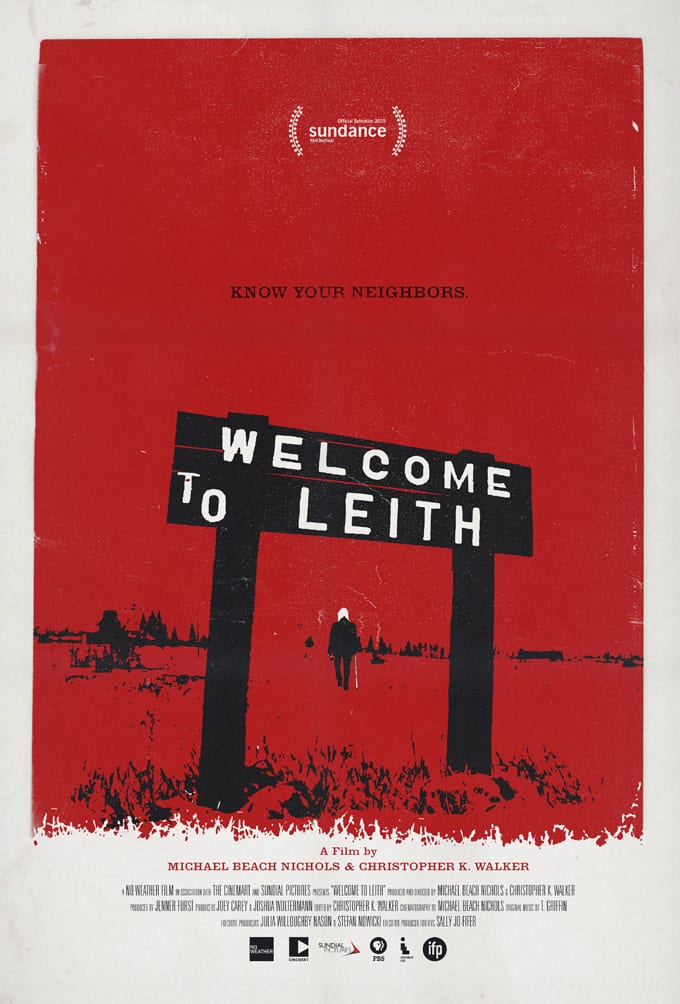
Directed by Michael Beach Nichols and Christopher K. Walker
United States, 2015
Philadelphia Film Festival
Welcome to Leith is a documentary, but it might as well be a thriller. Directors Michael Beach Nichols and Christopher K. Walker shoot the film with harrowing, slowly moving B-roll, an ominous score, and a structure designed like a cliffhanger, home-invasion movie.
Infamous white supremacist Craig Cobb moves to the small (population: 24) town of Leith, North Dakota and starts buying up property. Soon he’s posting on racist message boards, calling others of his ilk to the area, and planning a town takeover.
Welcome to Leith is gorgeous. The directors capture the slow, frosty town in frequent sunrise and sunset frames, small pushes into the surrounding woods (made more foreboding once swastikas are painted on trees), and impressive set pieces (including a house fire, where the shallow depth of field and embers falling gently in the background of close-ups add to the beauty).
The interviews with the townsfolk are illuminating. Most time is spent with a mayor who was “grandfathered into the job”, and with Lee Cook, a stoic, soft-spoken man most angered by Cobb. But it’s the interviews with Cobb and another, younger National Socialist that make the film more complex.
Cobb is engaging, well spoken, and happy to speak plainly about his past. The filmmakers first introduce him when another Leith resident relates how she at first contemplated introducing Cobb to her mother as a romantic possibility. He’s also shockingly prejudiced and spouts malicious, racist propaganda. His cohort, Kynan Dutton, furiously yells “Sieg Heil” in one scene, and bakes cakes in another. While all of this has the effect of humanizing the two men, this isn’t the directors’ modus operandi.
Cobb and Dutton discredit themselves nearly every time they open their mouths and Nichols and Beach are happy to let them do the work instead of resorting to probing questions or found footage montage. These scenes of normalcy are instead exceedingly disquieting: the violently bigoted tendencies simmering in what could be two externally “ordinary” men.
Nichols and Walker gracefully take the film from small town thriller to courtroom drama (and nearly back again). In the few times when the suspense settles, there’s still time for integral interviews with the Southern Poverty Law Center, the prosecutor in Cobb and Dutton’s terrorizing charges, and for oddball comedic relief with a local Navy veteran photographer (who also very much factors into the narrative).
Welcome to Leith is one of the best documentaries of the year, and a frightening look at very real monsters.

